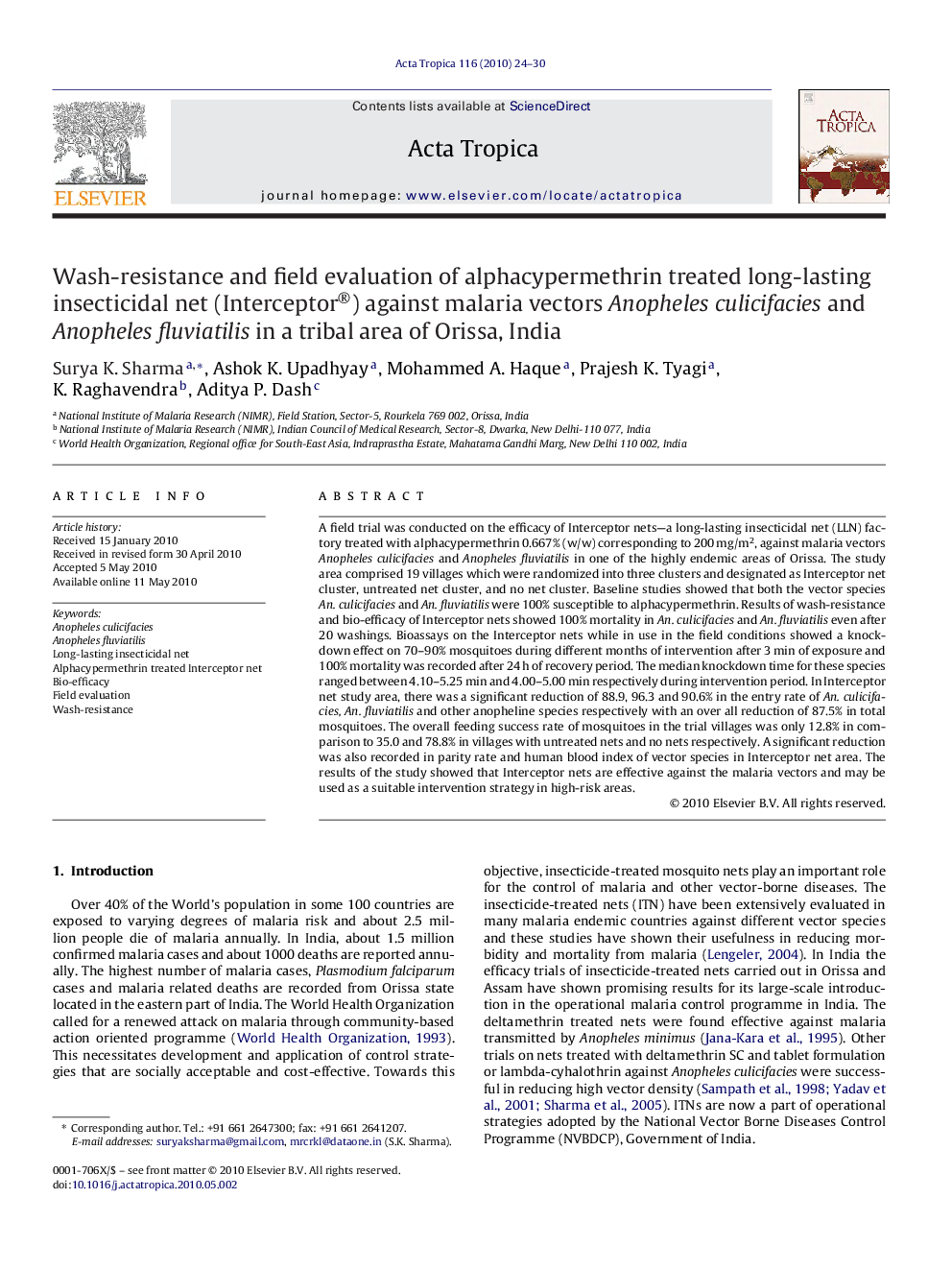| کد مقاله | کد نشریه | سال انتشار | مقاله انگلیسی | نسخه تمام متن |
|---|---|---|---|---|
| 3393990 | 1221436 | 2010 | 7 صفحه PDF | دانلود رایگان |

A field trial was conducted on the efficacy of Interceptor nets—a long-lasting insecticidal net (LLN) factory treated with alphacypermethrin 0.667% (w/w) corresponding to 200 mg/m2, against malaria vectors Anopheles culicifacies and Anopheles fluviatilis in one of the highly endemic areas of Orissa. The study area comprised 19 villages which were randomized into three clusters and designated as Interceptor net cluster, untreated net cluster, and no net cluster. Baseline studies showed that both the vector species An. culicifacies and An. fluviatilis were 100% susceptible to alphacypermethrin. Results of wash-resistance and bio-efficacy of Interceptor nets showed 100% mortality in An. culicifacies and An. fluviatilis even after 20 washings. Bioassays on the Interceptor nets while in use in the field conditions showed a knockdown effect on 70–90% mosquitoes during different months of intervention after 3 min of exposure and 100% mortality was recorded after 24 h of recovery period. The median knockdown time for these species ranged between 4.10–5.25 min and 4.00–5.00 min respectively during intervention period. In Interceptor net study area, there was a significant reduction of 88.9, 96.3 and 90.6% in the entry rate of An. culicifacies, An. fluviatilis and other anopheline species respectively with an over all reduction of 87.5% in total mosquitoes. The overall feeding success rate of mosquitoes in the trial villages was only 12.8% in comparison to 35.0 and 78.8% in villages with untreated nets and no nets respectively. A significant reduction was also recorded in parity rate and human blood index of vector species in Interceptor net area. The results of the study showed that Interceptor nets are effective against the malaria vectors and may be used as a suitable intervention strategy in high-risk areas.
Figure optionsDownload as PowerPoint slide
Journal: Acta Tropica - Volume 116, Issue 1, October 2010, Pages 24–30